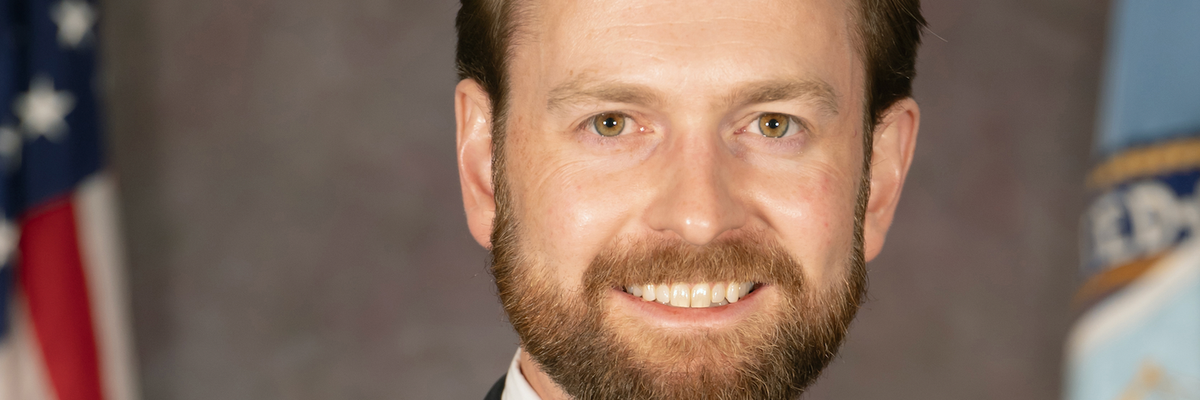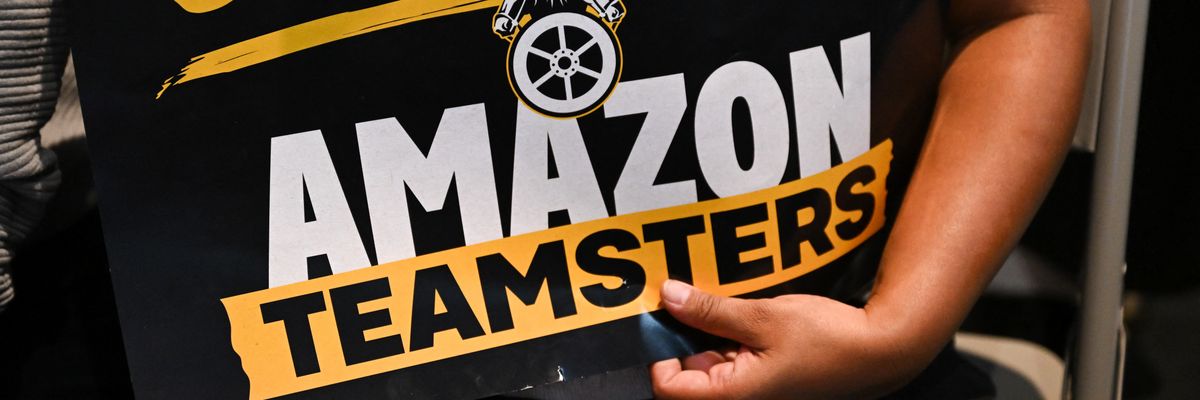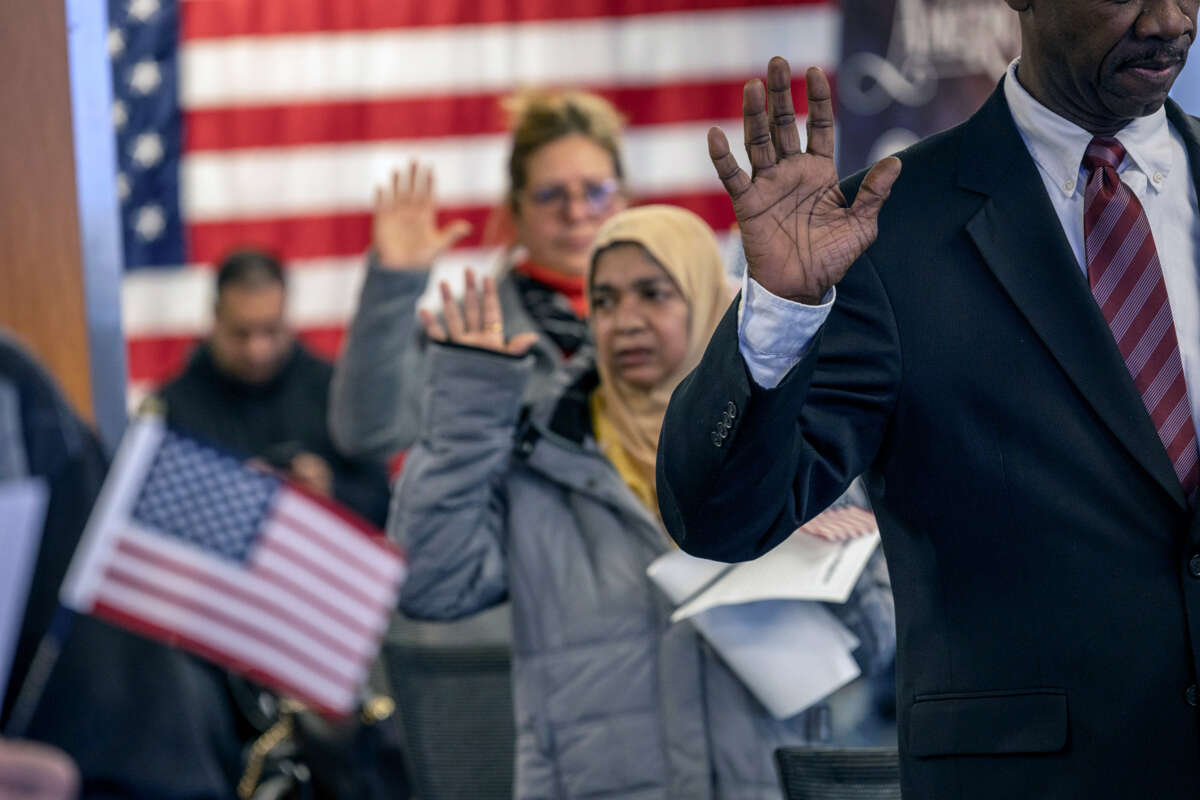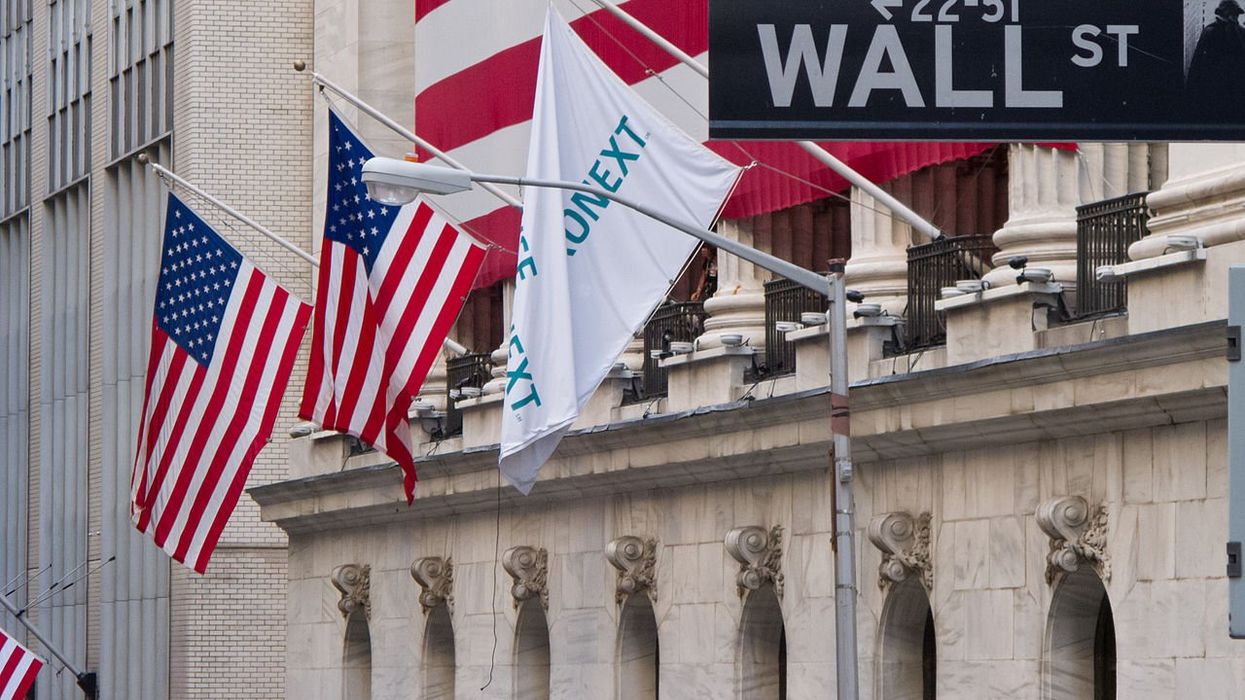The many ways that Donald Trump could use the presidency for personal gain — again.
by Nicole Narea
Dec 17, 2024
VOX

President Donald Trump and Mohammed bin Salman, crown prince of Saudi Arabia, at the start of the 2019 G20 summit in Osaka, Japan.

President Donald Trump and Mohammed bin Salman, crown prince of Saudi Arabia, at the start of the 2019 G20 summit in Osaka, Japan.
Bernd von Jutrczenka/picture alliance via Getty Images
“Victory” cologne and perfume. “Crypto President” watches. Limited-edition “American Eagle” guitars. T-branded golf shoes and “Fight Fight Fight” high-top sneakers.
These are just a sample of the many products licensed to bear President-elect Donald Trump’s brand, including some that he has promoted on his social media site Truth Social just weeks before his inauguration. If he continues to hawk his merchandise after returning to the White House, that could raise ethical concerns.
Consumer goods may be the least of Trump’s issues, however. He has a number of business ventures — including his social media platform, a nascent crypto firm, and the Trump Organization’s partnerships in the Middle East — that could present conflicts of interest, make the presidency vulnerable to foreign influence, and violate federal law.
Related:Trump has set up a perfect avenue for potential corruption
That includes the Constitution’s foreign emoluments clause, which prevents the president from receiving gifts from foreign governments. Enforcement of the clause against a sitting president has been rare, in part because previous presidents upheld a norm of divesting from holdings that could present a conflict of interest while in office. Trump, however, broke with that tradition during his first term.
While President Jimmy Carter famously put his peanut farm in a blind trust, Trump had his sons take over the Trump Organization when he became president in 2016. His global business empire reaped $2.4 billion in revenue, including from foreign governments, in the four years that followed. Government ethics organizations consequently sued him, claiming that he had violated the foreign emoluments clause, but the litigation was never resolved before he left office.
Now, that litigation may be reprised, potentially providing harder limits on presidents’ ability to benefit financially from their time in office. A representative for the Trump transition team did not respond to a request for comment.
“We saw rampant conflicts of interest, abuses of power, profiting from serving in government during his first administration,” said Aaron Scherb, senior director of legislative affairs at Common Cause, a left-leaning watchdog group focused on ethics in government. “This next administration, we expect to see more of the same, and unfortunately, it seems like a fairly complicit Congress.”
Trump’s conflicts of interest in his first term, explained
At the start of his first term, Trump suggested that he would take steps to separate himself from his properties.
However, he never divested from his properties, remaining in close contact with his sons about Trump Organization dealings. As president, he made a total of at least 500 visits to his own hotel and golf properties, calling his Florida club Mar-a-Lago the “Winter White House.” This brought an influx of taxpayer money to those properties.
It also sent a message that patronizing his properties might win lobbyists, foreign actors, and others influence in the Trump administration.
For instance, diplomats from Bahrain, Azerbaijan, Kuwait, Malaysia, Georgia, and other countries either hosted events at Trump properties or stayed at Trump hotels, including his now-sold Trump International Hotel in Washington, DC. Overall, the government oversight group Citizens for Responsibility and Ethics in Washington (CREW) estimated that Trump benefited from about $13.6 million in payments from foreign governments during his first term as a result.
CREW has argued that Trump’s actions were not just slimy but illegal. In a lawsuit filed shortly after his inauguration in 2017, the organization argued that he had violated the foreign emoluments clause. Attorneys general from Washington, DC, and Maryland made a similar argument in a separate case.
Two appeals courts — the Second Circuit and the Fourth Circuit — allowed those cases to move forward over Trump’s objections. The president appealed to the US Supreme Court just before the 2020 election. When he lost the election to Joe Biden, his lawyers argued that the justices should just wait to rule in the cases until after the inauguration, which would make them moot and allow them to be dismissed without creating a precedent.
That’s exactly what the justices eventually did. As a result, any future litigation would essentially have to start from scratch in challenging any emoluments clause violations by Trump.
Having never suffered adverse legal consequences for his conflicts of interest, Trump upended ethical expectations of the president, as well as those of officials around him, said Lisa Gilbert, co-president of Public Citizen, a left-leaning consumer rights advocacy group. Former Trump adviser Kellyanne Conway, for instance, promoted products marketed by Trump’s daughter, Ivanka Trump, potentially violating federal ethics rules preventing executive branch employees from boosting products on behalf of their friends or associates.
“The fish rots from the head,” Gilbert said. “Seeing that he was very limited in the constraints he placed on himself absolutely emboldened those around him.”
How Trump could profit off the presidency this time around
Trump made an ethics pledge for a second term, but it doesn’t make any commitments in terms of how he might resolve his persistent conflicts of interest stemming from his now even more sprawling businesses. This time, there are many more ways that he could use the presidency for his own personal gain — and potentially be vulnerable to the influence of foreign actors.
“He’s essentially flouting ethics rules and conflicts of interest laws much more blatantly, much more obviously than last time,” Scherb said. “He’s not even trying to hide what he’s doing at all this time.”
Chief among these conflicts of interest is his stake in the publicly traded parent company of Truth Social, the president-elect’s social media platform. Just after he won the election, that stake was worth $3.5 billion. The value of the company’s stock has oscillated in the month since, but Trump’s stake still makes up a large portion of his estimated $6.8 billion net worth.
Never before has a president had such a significant stake in a publicly traded company, and for good reason: Foreign actors could easily and entirely legally buy up its stock, inflating its value and Trump’s net worth. Not only that, they could also “threaten to just dump all their shares at once, which would crater his net worth,” giving them potentially a “huge amount of leverage over the president,” said Jordan Libowitz, a spokesperson for CREW.
The Trump Organization has also recently struck a series of deals worth hundreds of millions of dollars to construct luxury hotels and properties in Saudi Arabia, Oman, and the United Arab Emirates, as well as established a partnership with the Saudi-funded LIV Golf. That has drawn Trump into an even closer relationship with the Saudis, which dates back to 2017 when he made the country stop number one on his first overseas trip as president.
“That’s an easy way for the Saudis to pump money into the Trump org,” Libowitz said.
In September, Trump also launched a crypto venture, World Liberty Financial, alongside his sons and his new Middle East envoy, billionaire real estate tycoon Steve Witkoff.
Libowitz raised concerns about a $30 million investment in the company from Chinese crypto entrepreneur Justin Sun, who is currently fighting fraud charges from the Securities and Exchange Commission. Trump and his family are expected to net roughly $20 million thanks to that deal, according to the BBC. Notably, Trump has recently nominated crypto advocate Paul Atkins to head the SEC.
Scherb said he isn’t expecting robust oversight of these conflicts of interest from the incoming Republican-controlled Congress. But if Trump again faces lawsuits challenging his conflicts of interest, he may employ a familiar legal strategy: delay, delay, delay. That’s what allowed him to run out the clock at the Supreme Court during the first round of emoluments cases.
“Team Trump is expert at delaying litigation, as has been shown through his criminal cases over the last four years,” Gilbert said. “That said, there are going to be a plethora of violations and ways for us to act, so I wouldn’t assume they can avoid them all.”
“Victory” cologne and perfume. “Crypto President” watches. Limited-edition “American Eagle” guitars. T-branded golf shoes and “Fight Fight Fight” high-top sneakers.
These are just a sample of the many products licensed to bear President-elect Donald Trump’s brand, including some that he has promoted on his social media site Truth Social just weeks before his inauguration. If he continues to hawk his merchandise after returning to the White House, that could raise ethical concerns.
Consumer goods may be the least of Trump’s issues, however. He has a number of business ventures — including his social media platform, a nascent crypto firm, and the Trump Organization’s partnerships in the Middle East — that could present conflicts of interest, make the presidency vulnerable to foreign influence, and violate federal law.
Related:Trump has set up a perfect avenue for potential corruption
That includes the Constitution’s foreign emoluments clause, which prevents the president from receiving gifts from foreign governments. Enforcement of the clause against a sitting president has been rare, in part because previous presidents upheld a norm of divesting from holdings that could present a conflict of interest while in office. Trump, however, broke with that tradition during his first term.
While President Jimmy Carter famously put his peanut farm in a blind trust, Trump had his sons take over the Trump Organization when he became president in 2016. His global business empire reaped $2.4 billion in revenue, including from foreign governments, in the four years that followed. Government ethics organizations consequently sued him, claiming that he had violated the foreign emoluments clause, but the litigation was never resolved before he left office.
Now, that litigation may be reprised, potentially providing harder limits on presidents’ ability to benefit financially from their time in office. A representative for the Trump transition team did not respond to a request for comment.
“We saw rampant conflicts of interest, abuses of power, profiting from serving in government during his first administration,” said Aaron Scherb, senior director of legislative affairs at Common Cause, a left-leaning watchdog group focused on ethics in government. “This next administration, we expect to see more of the same, and unfortunately, it seems like a fairly complicit Congress.”
Trump’s conflicts of interest in his first term, explained
At the start of his first term, Trump suggested that he would take steps to separate himself from his properties.
However, he never divested from his properties, remaining in close contact with his sons about Trump Organization dealings. As president, he made a total of at least 500 visits to his own hotel and golf properties, calling his Florida club Mar-a-Lago the “Winter White House.” This brought an influx of taxpayer money to those properties.
It also sent a message that patronizing his properties might win lobbyists, foreign actors, and others influence in the Trump administration.
For instance, diplomats from Bahrain, Azerbaijan, Kuwait, Malaysia, Georgia, and other countries either hosted events at Trump properties or stayed at Trump hotels, including his now-sold Trump International Hotel in Washington, DC. Overall, the government oversight group Citizens for Responsibility and Ethics in Washington (CREW) estimated that Trump benefited from about $13.6 million in payments from foreign governments during his first term as a result.
CREW has argued that Trump’s actions were not just slimy but illegal. In a lawsuit filed shortly after his inauguration in 2017, the organization argued that he had violated the foreign emoluments clause. Attorneys general from Washington, DC, and Maryland made a similar argument in a separate case.
Two appeals courts — the Second Circuit and the Fourth Circuit — allowed those cases to move forward over Trump’s objections. The president appealed to the US Supreme Court just before the 2020 election. When he lost the election to Joe Biden, his lawyers argued that the justices should just wait to rule in the cases until after the inauguration, which would make them moot and allow them to be dismissed without creating a precedent.
That’s exactly what the justices eventually did. As a result, any future litigation would essentially have to start from scratch in challenging any emoluments clause violations by Trump.
Having never suffered adverse legal consequences for his conflicts of interest, Trump upended ethical expectations of the president, as well as those of officials around him, said Lisa Gilbert, co-president of Public Citizen, a left-leaning consumer rights advocacy group. Former Trump adviser Kellyanne Conway, for instance, promoted products marketed by Trump’s daughter, Ivanka Trump, potentially violating federal ethics rules preventing executive branch employees from boosting products on behalf of their friends or associates.
“The fish rots from the head,” Gilbert said. “Seeing that he was very limited in the constraints he placed on himself absolutely emboldened those around him.”
How Trump could profit off the presidency this time around
Trump made an ethics pledge for a second term, but it doesn’t make any commitments in terms of how he might resolve his persistent conflicts of interest stemming from his now even more sprawling businesses. This time, there are many more ways that he could use the presidency for his own personal gain — and potentially be vulnerable to the influence of foreign actors.
“He’s essentially flouting ethics rules and conflicts of interest laws much more blatantly, much more obviously than last time,” Scherb said. “He’s not even trying to hide what he’s doing at all this time.”
Chief among these conflicts of interest is his stake in the publicly traded parent company of Truth Social, the president-elect’s social media platform. Just after he won the election, that stake was worth $3.5 billion. The value of the company’s stock has oscillated in the month since, but Trump’s stake still makes up a large portion of his estimated $6.8 billion net worth.
Never before has a president had such a significant stake in a publicly traded company, and for good reason: Foreign actors could easily and entirely legally buy up its stock, inflating its value and Trump’s net worth. Not only that, they could also “threaten to just dump all their shares at once, which would crater his net worth,” giving them potentially a “huge amount of leverage over the president,” said Jordan Libowitz, a spokesperson for CREW.
The Trump Organization has also recently struck a series of deals worth hundreds of millions of dollars to construct luxury hotels and properties in Saudi Arabia, Oman, and the United Arab Emirates, as well as established a partnership with the Saudi-funded LIV Golf. That has drawn Trump into an even closer relationship with the Saudis, which dates back to 2017 when he made the country stop number one on his first overseas trip as president.
“That’s an easy way for the Saudis to pump money into the Trump org,” Libowitz said.
In September, Trump also launched a crypto venture, World Liberty Financial, alongside his sons and his new Middle East envoy, billionaire real estate tycoon Steve Witkoff.
Libowitz raised concerns about a $30 million investment in the company from Chinese crypto entrepreneur Justin Sun, who is currently fighting fraud charges from the Securities and Exchange Commission. Trump and his family are expected to net roughly $20 million thanks to that deal, according to the BBC. Notably, Trump has recently nominated crypto advocate Paul Atkins to head the SEC.
Scherb said he isn’t expecting robust oversight of these conflicts of interest from the incoming Republican-controlled Congress. But if Trump again faces lawsuits challenging his conflicts of interest, he may employ a familiar legal strategy: delay, delay, delay. That’s what allowed him to run out the clock at the Supreme Court during the first round of emoluments cases.
“Team Trump is expert at delaying litigation, as has been shown through his criminal cases over the last four years,” Gilbert said. “That said, there are going to be a plethora of violations and ways for us to act, so I wouldn’t assume they can avoid them all.”

Nicole Narea covers politics and society for Vox. She first joined Vox in 2019, and her work has also appeared in Politico, Washington Monthly, and the New Republic.












